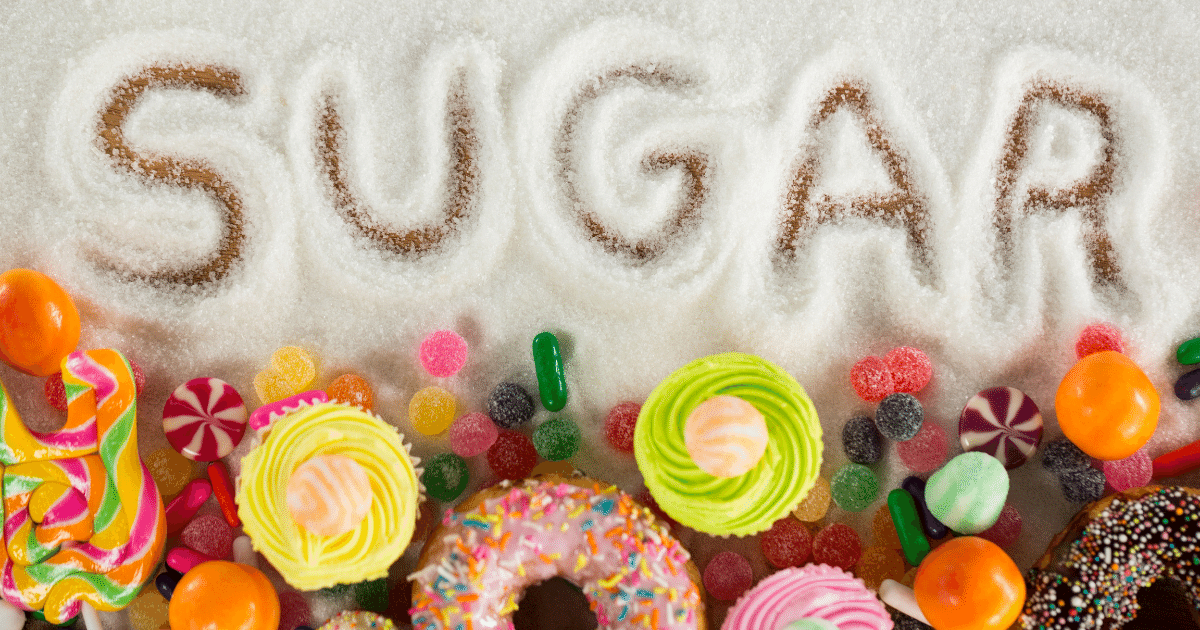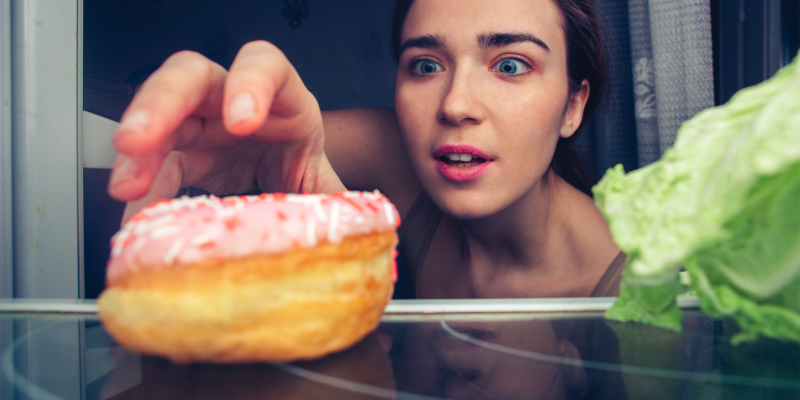Sugar, Dopamine and the Brain’s Reward System
To understand why someone might crave sugary sweets when they stop drinking or taking drugs, you must first understand the brain’s “reward system” and how substance abuse affects it. Repeated use of alcohol and most drugs impacts the brain’s reward system by releasing larger-than-normal amounts of dopamine.
What is Dopamine?
Dopamine is a neurotransmitter (aka, a chemical messenger between neurons) in the brain that causes the body to feel euphoria and pleasure, among other things. A healthy brain produces normal amounts of dopamine and helps motivate someone to repeat positive behaviors that make them feel good. The chemical is released when your brain is expecting a reward, like food. However, drug and alcohol consumption hijacks this process.
The result is a large surge of dopamine in the brain that can make someone want to repeat negative behaviors, like substance use, in order to chase the pleasurable feeling they experience.
The Brain’s Response to Drugs or Alcohol Over Time
With consistent and prolonged use of drugs or alcohol the brain eventually adapts to receiving large amounts of dopamine, increasing your tolerance. This means you’ll need more of the drug in order to experience the same feeling you had when you first started using a substance. Over time and as a result, previously pleasurable activities may not seem as rewarding in comparison, which can lead you to constantly chase the initial “high.”
Replacing Drugs and Alcohol with Sugar
If you’ve used drugs or alcohol frequently for long periods of time then stop, there is a good chance you’re going to crave sugar. This is because you no longer get surges of dopamine from a substance. Sugar often fills the void.
This is why many people who try to quit “cold turkey” experience cravings among other withdrawal symptoms. While they’re likely craving the substance itself, they also know they can’t use it if they want to overcome their addiction.
Like most drugs and alcohol, but at a lower level, the brain produces large amounts of dopamine when you consume sugar. Foods high in sugar cause our brains to feel more pleasure than other more nutritious foods. Therefore, it’s common for someone in early addiction recovery to crave sweets and other sugary foods to try and produce the large amounts of dopamine they need to feel good.
Why the Old Rehab Mindset Won’t Help Long-term
In the past, addiction treatment centers would give in to sugar cravings in an effort to help curb the cravings patients had for drugs and alcohol. While I was on a nutrition-focused episode of the Landmark Recovery Podcast, host Michael Walsh said that some rehab centers would even serve dessert first during meals.
“I’d be trying to find a place on my plate for a couple of vegetables or something after I did all the desserts and the main protein,” said Walsh, who also serves as director of clinical outreach at Landmark Recovery.
You can listen to the rest of that episode here.
First, added sugar provides no nutritional value and can be detrimental to your overall physical health. Eating foods high in added sugar on a regular basis increases your risk for:
- Obesity
- Type 2 diabetes
- Heart disease
- Tooth decay
- Depression

Using Good Nutrition to Ease Cravings
Addiction recovery centers today, especially Landmark Recovery, have shifted focus towards adequate nutrition at the start of recovery. Residents at our inpatient rehab locations receive regular, well-balanced meals consisting of:
- Whole grains
- Lean protein
- Fruits
- Vegetables
- Healthy fats
Among other health benefits, nutritious foods help promote overall physical health. When patients are feeling better physically, they sleep better, stay in a more positive mood and experience an increased ability to focus on their recovery while in treatment.
5 Tips on How to Ease Cravings During Recovery
While sugar cravings are strongest at the beginning of your recovery, here are five things you can do at any point to help control them:
1. Eat Regular Meals
The most common eating schedule in a rehab center is three meals per day (breakfast, lunch and dinner) with snacks in between. But for those trying recovery at home, you can break it up however you like. The key component here is not to go too long without eating to the point where you are past a normal hunger level.
If you’ve ever heard of the term “hangry,” it’s actually your body’s response to going too long without eating. You become hungry and angry at the same time. Ironically, your blood sugar is lower than normal, which can leave you stressed and irritated. As a result, you may instinctively choose a “quick energy” option like foods high in sugar.
2. Choose Fruits
Although fruits are sweet due to a natural sugar called fructose, they also contain fiber, vitamins, and minerals. The fiber in fruit helps slow digestion, which keeps you full for longer and slows down how quickly the natural sugars enter your bloodstream. Consuming fruit is a great way to satisfy your sweet tooth and reap nutritional benefits.
3. Eat Enough Protein
High-protein foods help keep you full, which can curb drug or alcohol cravings. Protein is also responsible for helping your body repair cells. That includes the brain cells needed to create the neurotransmitter dopamine. This is especially important because your body needs to relearn how to produce the chemical without drugs or alcohol so you can start repeating healthy behaviors again.
Try to consume foods high in protein, such as:
- Beef
- Poultry (chicken, turkey, etc.)
- Eggs
- Beans/Legumes
- Nuts
- Seeds
- Dairy (cheese, plain yogurt, etc.)
4. Get Plenty of Sleep
When you don’t get enough sleep, you can end up feeling lethargic and less motivated to fight your addiction. As a result, you’re more likely to reach for high-sugar foods for a quick energy fix.
5. Give Yourself a Break
Imagine eating a regularly scheduled and well-balanced diet, getting eight hours of sleep every night and still craving sweets. That’s called being human! If this sounds like you, it may actually help to satisfy your craving and eat something sweet every once in a while. As long as you’re not binging on sugar, a piece of candy or slice of cake every now and then is ok during recovery.
If you’ve tried to stop using drugs or alcohol before and think you might be suffering from addiction, call a Landmark Recovery specialist at 888-448-0302 or visit our website for more treatment information.

Choose Recovery Over Addiction
We're here 24/7 to help you get the care you need to live life on your terms, without drugs or alcohol. Talk to our recovery specialists today and learn about our integrated treatment programs.




